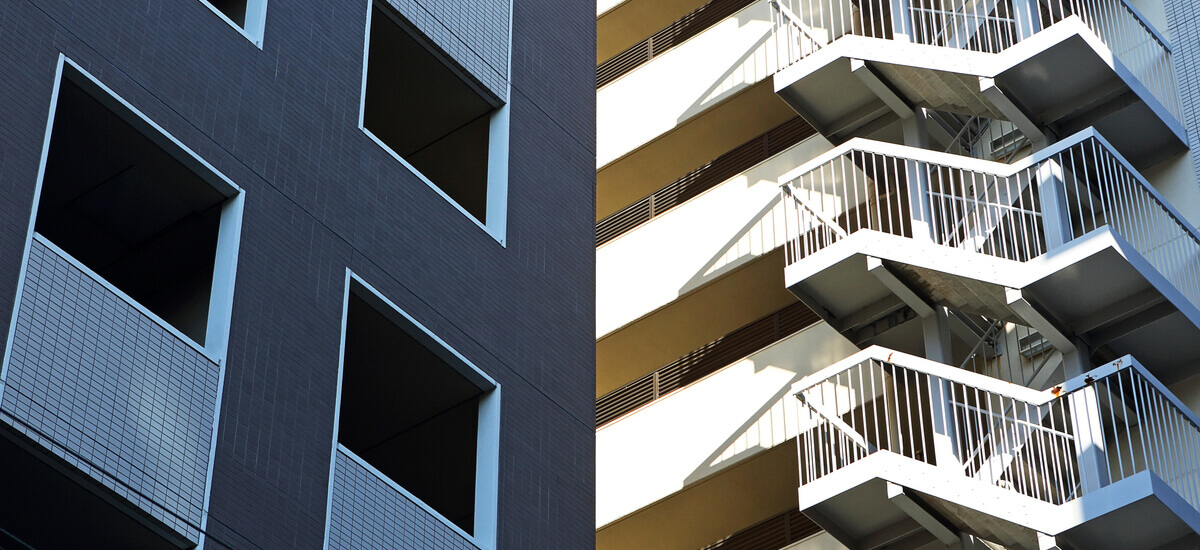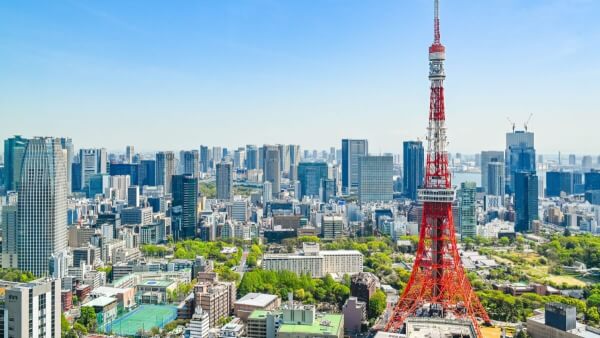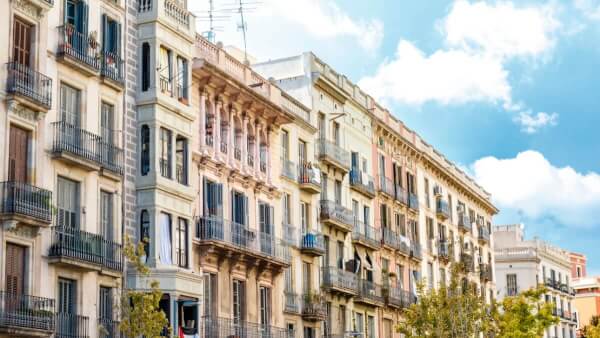Cost of owning a vineyard: what you need to know
Discover the costs involved in buying and owning a vineyard. From land prices to operational expenses, get a detailed breakdown to make an informed investment.

Foreigners can buy property in Japan. In fact, it’s been reported that the number of expats buying houses in Japan is on the rise thanks to the popularity of the 2020 Tokyo Olympics¹. If you’re already in Japan, or interested in exploring what it’s like living in Japan as a foreigner, buying Japanese real estate might be an astute move.
This guide walks through the key things you need to know about buying property in Japan as a foreigner.
| 📑 Table of Contents |
|---|
We’ll also touch on how Wise and the Wise international accountcan help cut the costs of sending money overseas when you live, work or retire internationally.
Foreigners can buy property in Japan freely, much like a Japanese citizen would. This applies to both residents and non-residents.
Unlike in many countries there are no bars on foreigners buying both properties and land, which means you can get a freehold or choose to develop your own home if you want to.
It’s worth noting though, that because of increasing numbers of expats buying homes and land in certain areas, moves are being made to start to impose some restrictions on foreign purchase of real estate². At present this focuses on restricting or monitoring property around strategic assets.
You may also need to report your home purchase under the Foreign Exchange and Foreign Trade Control Act if you’re not a resident in Japan. This involves submitting a report showing your personal details and the details of the property you’ve bought, within 20 days of purchase.
If you’re already a resident of Japan you’ll have various documents and tools to prove your right of residence — and you’ll need these to buy a property.
If you’re not a resident of Japan, the documents required are actually straightforward. At the most basic level you’ll just need to provide your identity to start the process.
| If you are a resident of Japan | If you aren’t a resident of Japan |
|---|---|
|
|
The average costs of homes in Japan can vary widely based on location and the type of property. Naturally properties in prime locations in the centre of major cities are going to come in with a much higher price tag than a rural retreat in the country.
You can start to build an idea of the average cost of homes in your preferred location by browsing real estate websites — and you can also use a site like Numbeo to find averages and ranges of costs by city. Here are a few examples to start your research.
| Location | Average cost per square metre — city centre | Average cost per square metre — outside of city centre |
|---|---|---|
| Tokyo³ | 11,908.41 USD | 7,291.27 USD |
| Kyoto⁴ | 5,832.10 USD | 5,996.17 USD |
| Fukuoka⁵ | 6,334.12 USD | 3,395.41 USD |
Note: prices correct at time of research, 10 November 2021
| Check how much you’ll have to pay in the local currency (JPY) with the handy calculator below |
|---|
When you’re budgeting remember to include closing and legal costs and other expenses like moving fees.
While the costs can vary depending on how you arrange your purchase you can get some very helpful resources online — look for English speaking real estate agents which often publish examples and detailed guides to the range of costs which could be involved. This guide from a Tokyo realtor is a good example to start off with.
Property taxes — both the tax you’ll pay at the point of purchase, and the ongoing costs of owning and maintaining a property — are fairly complex in Japan. They are assessed based on a number of factors including the value of the property, whether it is new or pre-owned, and there may also be local taxes based on location.
When buying a property you’ll need to consider stamp duty, registration and license taxes, and in some cases local real estate acquisition taxes. On an ongoing basis you may also pay local or national fixed asset taxes, which vary based on the type and location of your property.
As is common in many places, you’ll usually have to pay a deposit to the seller when you agree to the sale price. Then the remaining amount will be paid upon completion — usually using a bank transfer.
Deposit amounts can vary but are usually in the range of 10% — 20% of the sale price.
If you need to pay your deposit, closing costs or a mortgage overseas, you could save with international transfers from Wise.
Wise international payments use the real mid-market exchange rate with low, transparent fees. That means they are often much cheaper — and faster — than using your regular bank.
Nobody wants to pay more than they need to when sending money overseas — but this is especially important with major purchases like buying a home abroad.
Get a bad exchange rate for your high value transfer, and you could be spending far more than you need to, without even realising it.
Check out how much you can save, with international payments which use the real exchange rate, from Wise.
Foreigners can apply for home loans from financial institutions in Japan. However, while there’s no legal barrier to getting a mortgage or loan as a foreigner, banks do tend to be reluctant to approve applications.
Shop around to find banks and mortgage providers which may be able to help. If you’re a resident of Japan, and have a high income, you’re likely to be considered a far better credit risk, and may have the best chances of getting approved.
Let’s walk through the key steps you’ll need to take when buying a property in Japan.
Starting your search online is the easiest option. There are plenty of real estate sites available — basically broken down into 3 key choices:
Choose a Japanese language real estate site like Suumo or Homes — these sites have a broad range of options but you may need help from a local friend to navigate
Choose a local specialist used to working with expats, like RealEstate.co.jp
Look for global names which operate in Japan like Century 21 or Savills
Once you’ve got an idea of where you want to buy, and the types of property available, you’ll need to start looking around in person. Having a trustworthy real estate agent at this stage is essential.
Once you’ve found the perfect place you’ll need to complete a purchase application form. On this you’ll confirm key details, like how and when you’ll pay, and the proposed closing date.
Once all the details have been agreed by both parties you can move on to paying your deposit and getting the formal contracts drawn up.
You’ll now need to work through all the details of the sales contract with the help of your Real Estate agent and attorney. It’s important to make sure you really understand all the clauses in the contract, so your realtor will help with any questions. You’ll also complete due diligence checks on the property via an agent or attorney.
Once all the closing processes are ready, you’re nearly there. The final step will be to pay the remaining costs, cover your taxes, and settle anything you owe to your realtor and attorney. Then you can start your big move to your new home in Japan.
| 🚀 Quick, cheap and transparent. Send money to Japan with Wise and save up to 6x compared to traditional banks. |
|---|
Hopefully you’re excited about the prospect of getting involved in Japan real estate, But before you head out to buy a property in Japan, let’s look at a few tips to make sure the process goes smoothly for you.
|
|---|

Your options about the type of property will depend a lot on where you’re looking to buy. If you’re working with a local realtor in Japan you may come across mansions (マンション) and apātos (アパート) and well as houses.
As you might guess, the words mansion and apāto have originated in the English mansion and apartment. Both can probably fall into a broad category of condos — mansion type houses may be bigger developments with more amenities, while an apāto is more likely to be in a low level building. Houses are pretty standard in the countryside and smaller towns, but they’re also available in suburban areas and even in bustling parts of some cities.
Whichever type of property you’re looking to buy you’ll also need to check out whether it’s freehold or leasehold.
Apartments in Japan may be sold as freeholds, where each apartment owner also owns a proportion of the land the development is on. This type of arrangement is typically more expensive than buying a leasehold property, but does mean that no matter the ultimate value of the building, you’ll always own the land underneath it.
Leasehold properties — like in the US — will have a lease term which you’ll need to take into consideration. Depending on how long you intend to live in the property, or when you think you may choose to resell, the leasehold term can matter. Reselling a property with a very short remaining lease will always be tricky.
So there you have it — everything you need to know to get you started on the journey of living as a foreigner in Japan, and owning your own home.
Buying a home in Japan is a big decision, and definitely not cheap. Make sure that when you finally take the leap you’ve found the perfect place — and don’t forget to use Wise and the Wise international accountto help cut the costs of paying for your property, and living as an expat.
Sources:
Sources checked on 11.11.2021
*Please see terms of use and product availability for your region or visit Wise fees and pricing for the most up to date pricing and fee information.
This publication is provided for general information purposes and does not constitute legal, tax or other professional advice from Wise Payments Limited or its subsidiaries and its affiliates, and it is not intended as a substitute for obtaining advice from a financial advisor or any other professional.
We make no representations, warranties or guarantees, whether expressed or implied, that the content in the publication is accurate, complete or up to date.

Discover the costs involved in buying and owning a vineyard. From land prices to operational expenses, get a detailed breakdown to make an informed investment.

Learn effective strategies to get out of a timeshare, including cancellation, resale, and deed-back programs.

Everything you need to know about security deposits

Interested in buying property in Japan? Here’s everything you really need to know about buying property abroad as an American.

Interested in foreign real estate? These are the best and easiest countries to buy property abroad as an American.

Interested in buying property in Dubai? Here’s everything you really need to know about buying property abroad as an American.